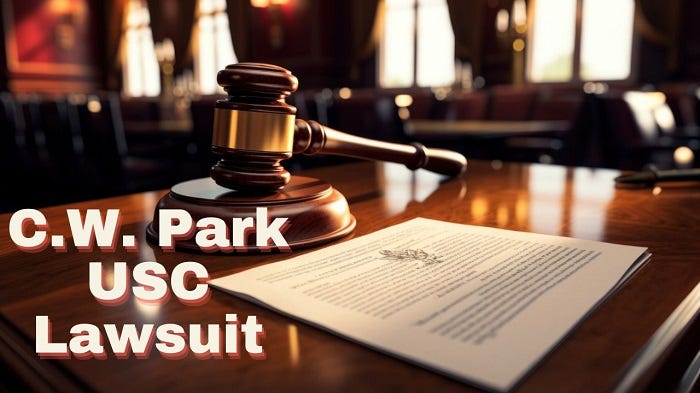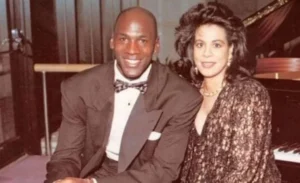C.W. Park USC Lawsuit: A Detailed Examination
C.W. Park USC Lawsuit: A Detailed Examination
The c.w. park usc lawsuit has garnered significant attention in both academic and legal circles. This case involves Dr. C.W. Park, a distinguished professor at the University of Southern California (USC), and the circumstances that led to a legal battle between him and the institution. This article delves into the background, key issues, implications, and potential outcomes of the lawsuit, providing a comprehensive analysis of the situation.
Background of C.W. Park and His Tenure at USC
Dr. C.W. Park is a well-respected academic in the field of marketing, known for his extensive research and contributions to the understanding of consumer behavior. His tenure at USC has been marked by numerous accolades and a strong reputation among his peers. Dr. Park’s work has been instrumental in shaping marketing strategies, particularly in brand management and consumer psychology. His contributions have made him a prominent figure in the academic world, particularly within the Marshall School of Business at USC.
The Origins of the Lawsuit
The lawsuit involving Dr. Park and USC stems from a series of events that allegedly involve breach of contract, wrongful termination, and discrimination. According to the lawsuit filed by Dr. Park, the issues began when USC made significant administrative changes that, according to him, affected his ability to perform his duties effectively. Dr. Park claims that these changes were implemented without proper consultation and violated the terms of his contract with the university.
The situation escalated when Dr. Park was allegedly forced into retirement or risked being terminated. He argues that this move was not only unjust but also discriminatory, given his long-standing service and contributions to the university. The lawsuit claims that USC’s actions were part of a broader effort to push out senior faculty members in favor of younger, less experienced individuals, which Dr. Park believes is a form of age discrimination.
Legal Claims and Allegations
The C.W. Park USC lawsuit centers on several key legal claims. First and foremost is the allegation of breach of contract. Dr. Park contends that USC violated the terms of his employment contract by imposing new conditions and effectively terminating his position without just cause. He argues that the university’s actions were not only in breach of the contract but also in violation of California labor laws.
In addition to breach of contract, Dr. Park alleges wrongful termination. He claims that USC’s actions were motivated by discriminatory practices, particularly age discrimination. The lawsuit suggests that the university targeted senior faculty members for removal in an effort to bring in younger talent, which Dr. Park argues is a clear violation of both state and federal anti-discrimination laws.
The University’s Response
USC has responded to the lawsuit by denying all allegations of wrongdoing. The university contends that the changes made were part of broader administrative reforms aimed at improving the institution’s overall performance and were not targeted at Dr. Park or any other specific individual. USC asserts that Dr. Park’s retirement was voluntary and that he was offered generous terms as part of the retirement package, which he declined.
USC’s legal team has also argued that the claims of age discrimination are unfounded. The university maintains that its hiring and termination practices are in full compliance with all relevant laws and that any changes to faculty positions were based on performance evaluations and the strategic needs of the institution, rather than any form of discrimination.
Impact on USC and the Academic Community
The c.w. park usc lawsuit has had a significant impact on the university and the wider academic community. For USC, the lawsuit has brought unwanted attention and has raised questions about its treatment of senior faculty members. The case has also sparked a broader debate about age discrimination in academia, with many observers concerned that older faculty members are being unfairly targeted in the name of institutional reform.
For the academic community, the lawsuit serves as a reminder of the challenges that senior faculty members can face as universities seek to modernize and adapt to changing educational landscapes. The case has highlighted the potential conflicts between long-serving academics and university administrations, particularly when it comes to issues of contract enforcement and fair treatment.
Broader Implications for Higher Education
The implications of the C.W. Park USC lawsuit extend beyond the immediate parties involved. This case could set a precedent for how similar disputes are handled in the future, particularly in terms of contract law and anti-discrimination protections within higher education. If Dr. Park’s claims are upheld, it could lead to increased scrutiny of university practices and potentially result in changes to how faculty members are treated, particularly those nearing retirement age.
The case also raises important questions about the balance between institutional needs and individual rights. Universities are under increasing pressure to adapt to new educational demands, often requiring significant changes to faculty roles and responsibilities. However, as this case illustrates, such changes must be handled carefully to avoid violating legal and ethical obligations to faculty members.
Potential Outcomes of the Lawsuit
As the c.w. park usc lawsuit progresses, several potential outcomes could arise. If the court rules in favor of Dr. Park, USC could be required to pay substantial damages, reinstate him to his previous position, or both. Such a ruling could also prompt other faculty members who feel similarly aggrieved to come forward, potentially leading to additional lawsuits and further scrutiny of USC’s practices.
Conversely, if the court sides with USC, it could reinforce the university’s position that the changes made were lawful and necessary. This outcome could also embolden other institutions to undertake similar reforms, knowing that they are likely to be upheld in court, provided they are implemented within the bounds of the law.
Regardless of the outcome, the lawsuit is likely to have lasting effects on how universities manage their faculty, particularly in terms of contract enforcement and the treatment of senior academics. The case serves as a cautionary tale for both universities and faculty members, highlighting the importance of clear communication, fair treatment, and adherence to contractual obligations.
Conclusion
The c.w. park usc lawsuit is a complex and multifaceted case that touches on numerous issues within the realm of higher education. At its core, the lawsuit is about the rights of faculty members and the responsibilities of universities to honor those rights. As the case unfolds, it will likely have significant implications for both USC and the broader academic community, potentially shaping the future of faculty relations and institutional practices in higher education. Whether seen as a fight for justice or a necessary battle over institutional reform, this lawsuit is one that will be closely watched by academics, legal experts, and university administrators alike.












Post Comment